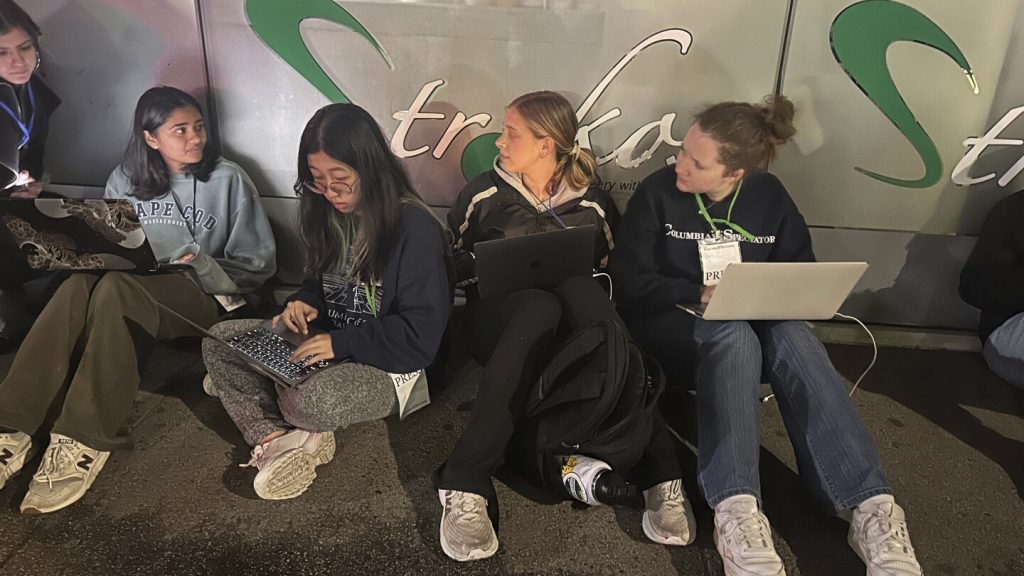Student journalists are facing challenges on American campuses as they cover protests and unrest. At UCLA, Catherine Hamilton and her colleagues from the Daily Bruin were surrounded by demonstrators who beat, kicked, and sprayed them with a noxious chemical. Despite the violence, Hamilton highlighted the importance of student journalists in providing campus-specific coverage. Across the country, student journalists are at the forefront of covering protests related to the Israel-Hamas war, including incidents at Columbia University and Dartmouth College.
At Columbia University, where a student-run radio station broadcast live as police cleared a building taken by protesters, student journalists faced restrictions and threats of arrest. Chris Mandell, a reporter for the Columbia Daily Spectator, was ordered into a dormitory by police despite wearing press identification. At Dartmouth College, two student journalists were arrested while covering a campus demonstration. Student publications like the Columbia Daily Spectator have been critical of university leadership’s response to the protests, highlighting issues of communication and safety.
Student-run news websites at Yale, the University of Texas-Austin, and the University of Southern California are providing around-the-clock coverage of protests, often juggling reporting responsibilities with academic obligations. The Pulitzer Prize Board has acknowledged the efforts of student journalists covering protests and unrest on college campuses across the country. At Columbia Journalism School, Dean Jelani Cobb praised student journalists for their perseverance and contributions to capturing the historic moment on campus.
Student journalists are grappling with complex editorial decisions as they cover protests involving their peers. At Ohio State University, The Lantern is facing challenges in balancing coverage of pro-Palestinian protesters and Jewish students or counter-protesters. Student journalists at The Daily Tar Heel at the University of North Carolina are making difficult decisions about anonymous sourcing and photographing individuals who fear arrest. The emotional impact of reporting on fellow students involved in protests is keenly felt by journalists like Annika Sunkara of The Huntington News at Northeastern University.
Despite the challenges, student journalists emphasize the importance of their connection to campus communities and their ability to provide unique perspectives on unfolding events. Building relationships with student groups, faculty, and administrators has allowed student journalists to have a deeper understanding of campus dynamics. This access and trust on campus enable student journalists to report with a level of insight and empathy that may be missing in coverage by national news outlets. As they navigate reporting on historic events, student journalists are committed to staying neutral, accurate, and ethical in their coverage.


